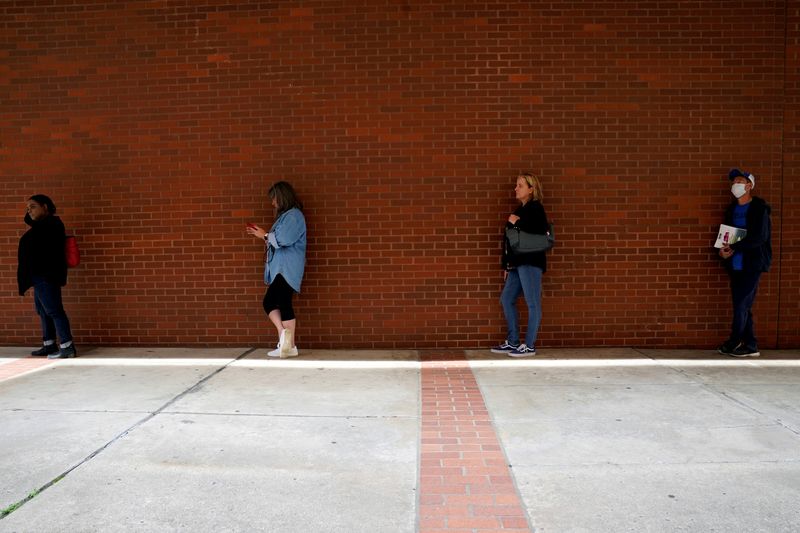By Peter Nurse
Investing.com -- OPEC meets with Russia and others to decide whether or not to raise oil output, U.S. initial jobless claims are due; Bitcoin starts receiving official acceptance, while Chinese President Xi talks of the need for a solution to the 'Taiwan problem', while again warning foreigners against 'bullying' it. Here's what's moving markets on Thursday, July 1st.
1. OPEC+ meeting eyed
Crude oil prices edged higher Thursday, aided by lower U.S. inventories, as investors awaited news from a meeting of top producers over future production levels.
By 5.48 AM ET, U.S. crude was up 0.9% at $74.16 a barrel, after gaining more than 10% in June, while Brent was up 0.8% at $75.26, after adding more than 8% last month.
Helping the market was the news late Wednesday that U.S. crude stockpiles fell 6.7 million barrels last week, according to the Energy Information Administration, dropping for the sixth straight week.
However, most eyes are on today’s meeting of the Organization of the Petroleum Exporting Countries and their allies, known as OPEC+.
The group has already agreed to raise output between May and July by 2.1 million barrels a day, and now has to decide whether to leave these production levels unchanged or boost output in August and then further out.
A preliminary meeting was extended for a day, suggesting internal disagreements, as the highly-contagious delta variant of the Covid-19 virus threatens to disrupt the world's economic recovery. Consensus expectations are for an output increase of around 500,000 barrels a day.
2. Initial claims add to labour market data
U.S. weekly jobless claims data are due at 8:30 AM ET (1230 GMT). Consensus is for 390,000 new claims, down from 411,000 in the previous period, while continuing claims, which run a week behind the headline total, are seen falling to 3.382 million from 3.39 million.
The Federal Reserve has made a substantial improvement in the health of the U.S. jobs market its chief priority as regards timing the withdrawal of monetary stimulus.
Wednesday’s ADP (NASDAQ:ADP) payrolls report showed private-sector employers added 692,000 jobs in June, more than expected. However, the ADP report hasn’t always been the best guide for the official nonfarm payrolls figure: last month ADP came in initially at 978,000 and payrolls at 559,000. .
3. China’s President Xi speaks
Chinese President Xi Jinping warned that foreign powers will "get their heads bashed" if they attempt to bully or influence the country, in a tub-thumping speech marking the centenary of the ruling Communist Party's founding.
He also pledged a “complete reunification” with Taiwan, saying it was not a problem 'to be passed from generation to generation'. According to the Financial Times, the U.S. and Japan have both stepped up planning for a military confrontation with China over Taiwan in recent weeks.
Meanwhile, China's Caixin/Markit Manufacturing Purchasing Managers' Index fell to 51.3 last month from May's 52, marking the 14th month of expansion. However, this was the slowest growth in 15 months, reflecting a resurgence of Covid-19 cases in the important province of Guangdong, supply chain woes and fading base effects from a year ago.
4. Stocks seen higher as second half starts
U.S. stocks are seen edging higher Thursday, starting the second half of the year in the same positive vein as they closed the first.
By 5.48 AM ET, Dow Jones futures were up 45 points, or 0.1%, S&P 500 futures were 0.1% higher and Nasdaq 100 futures were little changed.
The major indices closed the first six months of the year strongly on Wednesday, with the blue chip Dow Jones Industrial Average gaining 12.7%, the broad-based S&P 500 rallying 14.4% and the technology-heavy Nasdaq Composite rising 12.5%.
Wall Street has pressed ahead, helped by a successful vaccination program, which has allowed the majority of the country to re-open, healthy economic growth and strong corporate earnings. Immense fiscal and monetary stimulus has, of course, also created powerful tailwinds.
In corporate news, Chinese ride-hailing company Didi (NYSE:DIDI) will be in the spotlight Thursday after Wednesday’s volatile debut on the New York Stock Exchange after its float. The company’s stock closed up just 1%, after spiking almost 30%, at a price of $14.14, with a market cap of just under $68 billion.
Also of interest will be Walgreens Boots (NASDAQ:WBA), with the pharmacy chain set to report its third-quarter fiscal 2021 results before the open.
5. Bitcoin gets a boost from hedge fund reports
Bitcoin, the largest cryptocurrency by market capitalization, got a modest lift from reports that two renowned hedge fund operators are looking to get involved with trading it.
New York billionaire Steven Cohen’s hedge fund Point72 Asset Management, is reportedly searching for a “head of crypto”, while financial news website TheStreet reported that billionaire investor George Soros’s investment firm is trading Bitcoin as part of a broader exploration of digital assets.
Earlier this week, TP ICAP (LON:NXGN), the world's biggest interdealer broker, announced plans to launch a cryptocurrency trading platform with Fidelity Investments and Standard Chartered (OTC:SCBFF). The move was seen as a sign that established marketplaces that are capable of meeting regulators' concerns about facilitating money-laundering and tax evasion are eager to exploit increased institutional interest in the asset class.
At 6:30 AM ET, Bitcoin traded 4.3% lower at $33,520, some way below the $65,000 level seen in mid-April.
